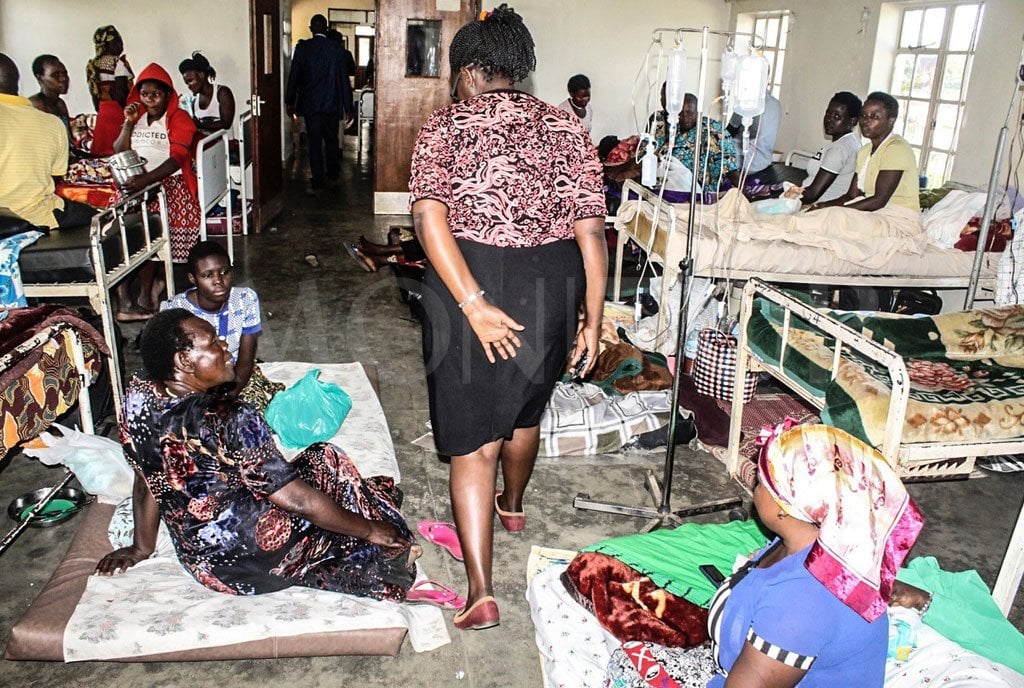Only 30 % of patients satisfied with healthcare

Left to right: The State Minister of Health in-charge of General Duties, Ms Anifa Kawooya Bangirana; the Director of Clinical Services at the Ministry of Health, Dr Charles Olaro; the WHO County Representative, Mr Bayo Fatunmbi, and the National Drug Authority Regulatory officer, Mr Francis Odipiyo during the World Patient Safety Day in Kampala on September 15, 2022. PHOTO/FRANK BAGUMA
What you need to know:
Dr Charles Olaro, the director of clinical services at the ministry, said errors related to wrong diagnosis and wrong treatment are the 14th leading cause of death globally.
Officials at the Health ministry have said only 30 percent of the patients who seek healthcare in public health facilities are satisfied with the services.
They attribute the low statistics to rampant cases of medication errors.
Dr Martin Ssendyona, the acting commissioner for standards compliance accreditation and patient protection department at the Ministry of Health, said the country is falling short of the international standards for patient safety.
“There is work that should be done as far as patient safety is concerned. All health workers are trained not to injure themselves and not to injure those they work on. We need to put in place mechanisms to identify where we make mistakes and where we have areas to address,” he said.
He was speaking during the World Patient Safety Day commemorated at the Health ministry’s headquarters in Kampala yesterday.

Dr Charles Olaro, the director of clinical services at the ministry, said errors related to wrong diagnosis and wrong treatment are the 14th leading cause of death globally.
“No one should be harmed while receiving medication. It is one of the key principles of medical practice. Every medicine has got side effects, so we have to balance the side effects by ensuring that its use is justified,” he said.
“By the time you are taking medicine, the diagnosis should be correct because medicine for the wrong disease will not have an impact and the effect is much more different from when you are taking medicine for the right disease. We should also minimise self-medication because it can harm the consumer,” he added.
Ms Anifa Kawooya, the State minister for Health in-charge of General Duties, asked doctors to stop using abbreviations and unclear instructions while prescribing medicine.
“If our medical practitioners use handwritings that are readable, it will help us avoid mistakes [of taking wrong doses]. If you write well, the caretaker of the patient will be able to remember and give the patient the right dose,” she said.
Dr Hellen Ndagije, the director for product safety at the National Drug Authority, said the safety of medicine involves the healthcare provider, the patient, and the caretaker.
“All medicines have a potential to cause harm, but it is the mandate of the NDA to ensure that the way they are manufactured, transported, and stored don’t cause harm to patients,” she said.
Don’t want to miss out on any story? For updates on all Monitor stories, follow this link on Telegram: https://t.me/dailymonitor




